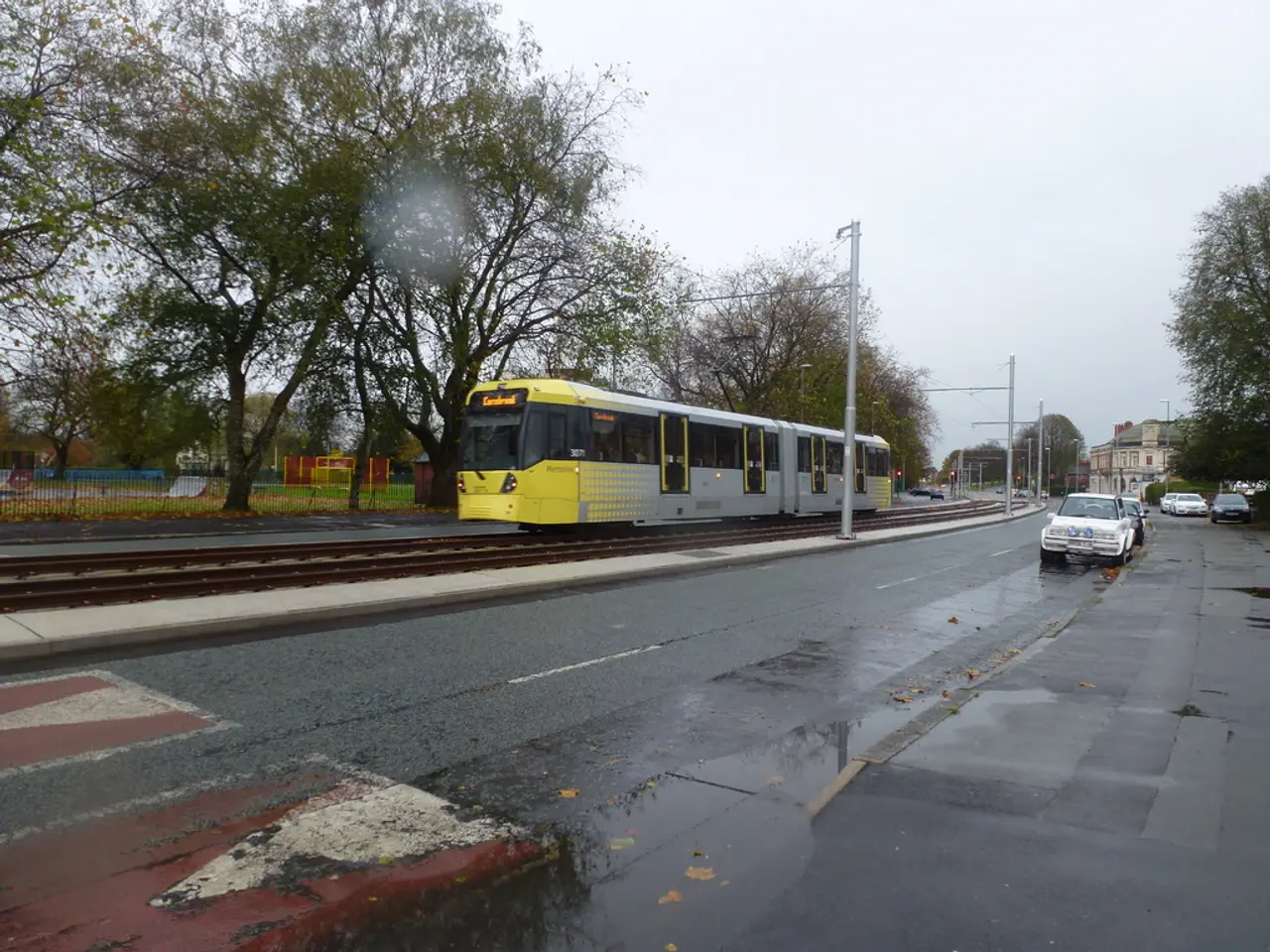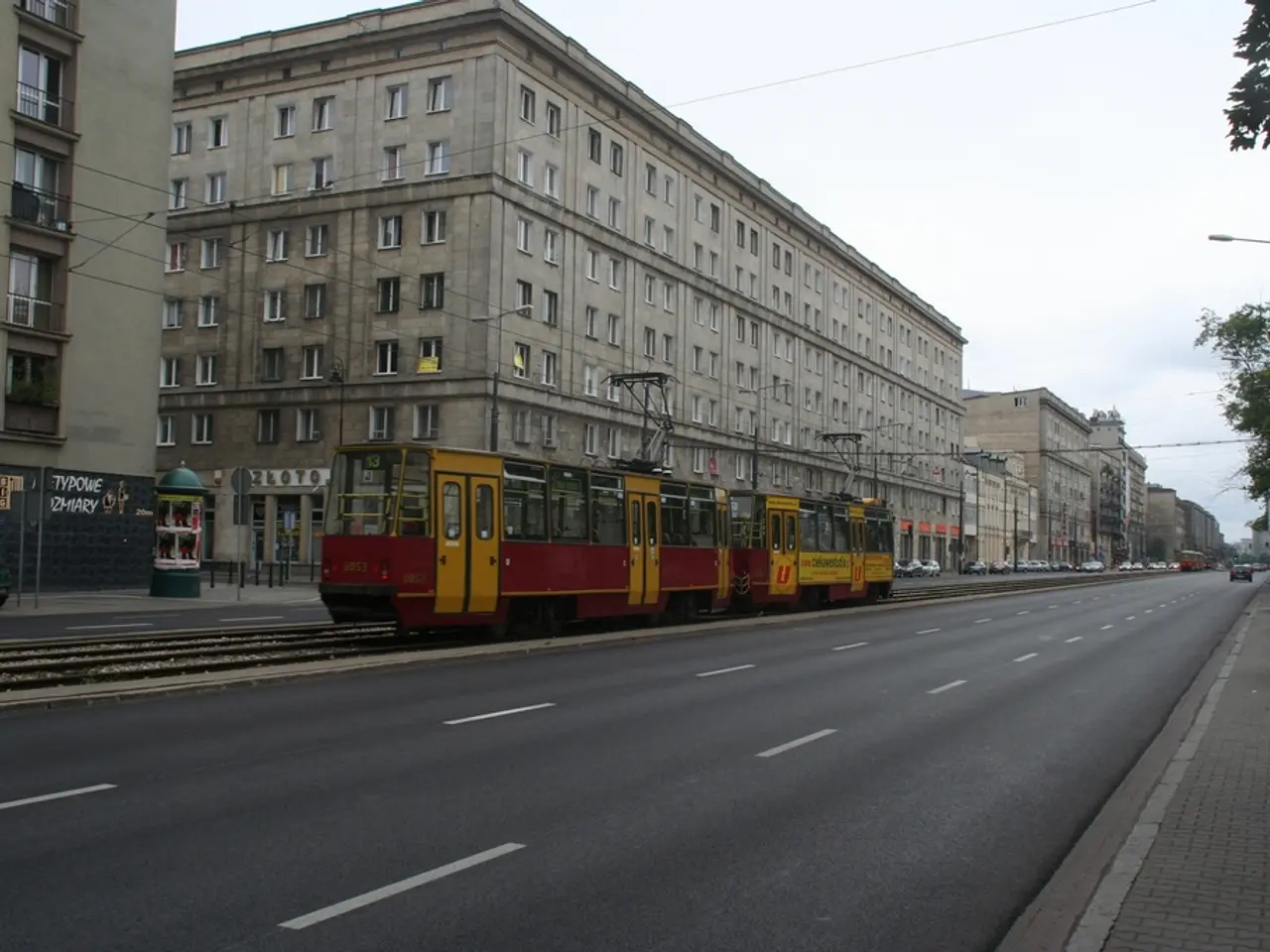Budget Dust-Up: Brandenburg's Political Tussle over Controversial Spending
Majority Vote: Legislative Assembly Maps Out Financial Plan - Ministerial Council Approves Resolution on the Matter in Question
Hey there! The latest heat in Brandenburg's political scene surrounds the contentious state budget teetering on the brink of approval. The budget, laced with cuts that have stirred up quite a ruckus, has passed the crucial final hurdle before the final vote with a narrow majority.
The ruling SPD/BSW coalition voted in favor of the dual budget for the current and following year after the second reading, despite not having a unanimous vote. BSW MP Sven Hornauf from Frankfurt (Oder) rebelled against it, as did AfD and CDU members. One AfD member was AWOL for the voting session. The ultimate decision will be made on the following Friday.
Hornauf voiced his disdain for the proposed additional teaching hour for teachers per week and argued for a differentiated basic tax rate for residential and commercial properties for municipalities. Hornauf frequently berates the coalition's decisions and hinted he would vote against the budget during the final vote, claiming there is no majority to support his proposed changes. "If this situation remains unchanged, my vote will remain unaltered."
Outcry over the budget reduction - Coalition Response
The dual budget has ignited protests for several months. Thousands of teachers, educators, parents, and others took to the streets rallying against the cuts. The number of teaching positions will decrease, and teachers will have to shoulder one additional hour of teaching per week elsewhere. However, the education budget overall will see an increment. Hospitals and police will receive more funds.
The SPD/BSW coalition aims to borrow an additional billion euros for this year and 1.25 billion euros for 2026, depleting the reserve. The coalition factions of SPD and BSW have withdrawn cuts for municipalities, care, and family centers and boosted funds for substitute teachers in schools, daycare centers, and roads. Finance Minister Robert Crumbach (BSW) defends the cuts and points to the economic crisis. The AfD and CDU opposition rejects the dual budget, claiming the planned new debt to be too high.
Now, you might wonder about property tax in this state. Well, let me give you a brief rundown. The annual property tax (Grundsteuer) in Brandenburg is totaled based on property value and a municipal multiplier, which varies by location and property type. This system results in different effective tax burdens for residential versus commercial properties, but the exact municipal multipliers are determined locally, not uniformly across the state.
Moreover, the land transfer tax rate in Brandenburg is set at 6.5%. The reform of German property evaluations in 2022, in response to a Constitutional Court ruling, affected both residential and commercial properties, often resulting in higher taxable values and increased property tax liabilities for many owners. Legal challenges over the reforms have arisen, sparked by concerns about fairness and assessment accuracy.
- Budget
- SPD
- State Parliament
- Potsdam
- Brandenburg
- AfD
- Teacher
- CDU
- Vote
- Cut
- Frankfurt (Oder)
- Double Budget
- Property Tax System
- Differentiated Basic Tax Rate
- Land Transfer Tax Rate
- Municipal Multipliers
- Legal Challenges
- Reassessment
- Fairness and Assessment Accuracy
- The State Parliament in Potsdam is also discussing a proposal from the Commission, requesting a directive on the protection of workers from risks related to exposure to ionizing radiation in the context of the budget debate.
- The issue of a differentiated basic tax rate for residential and commercial properties, a concern raised by BSW MP Sven Hornauf, has been a topic of discussion in Brandenburg's political and business circles, as well as in general news discussions.




